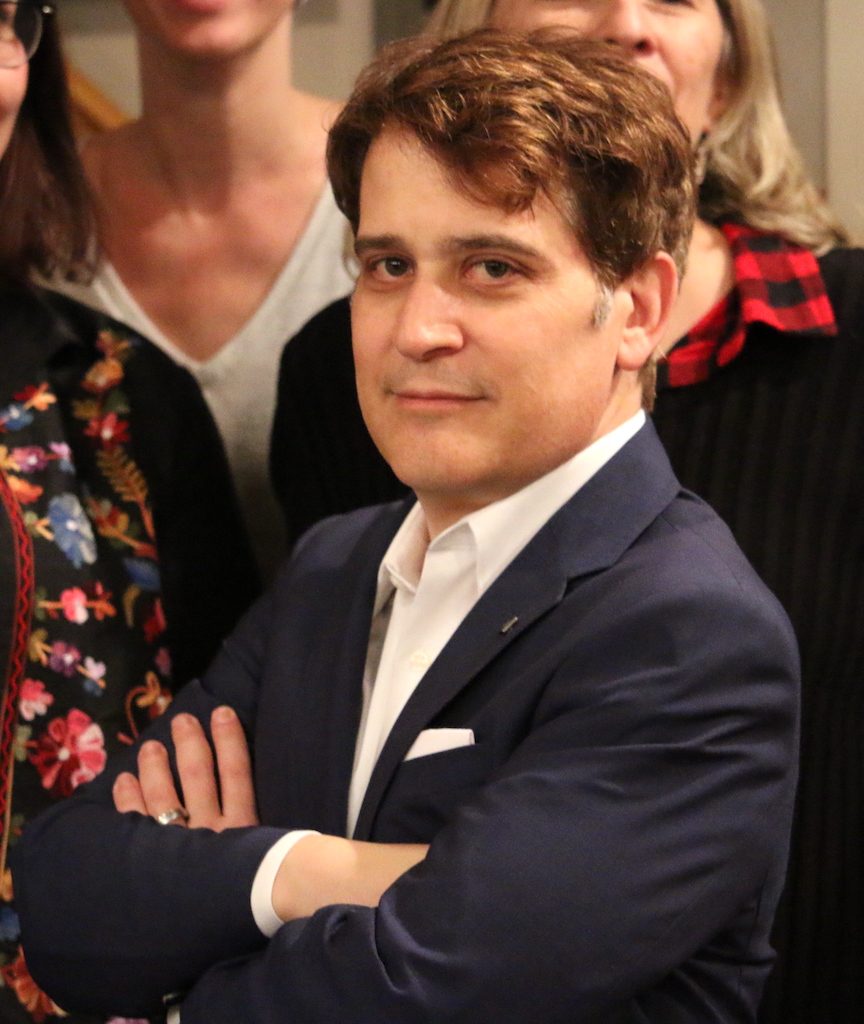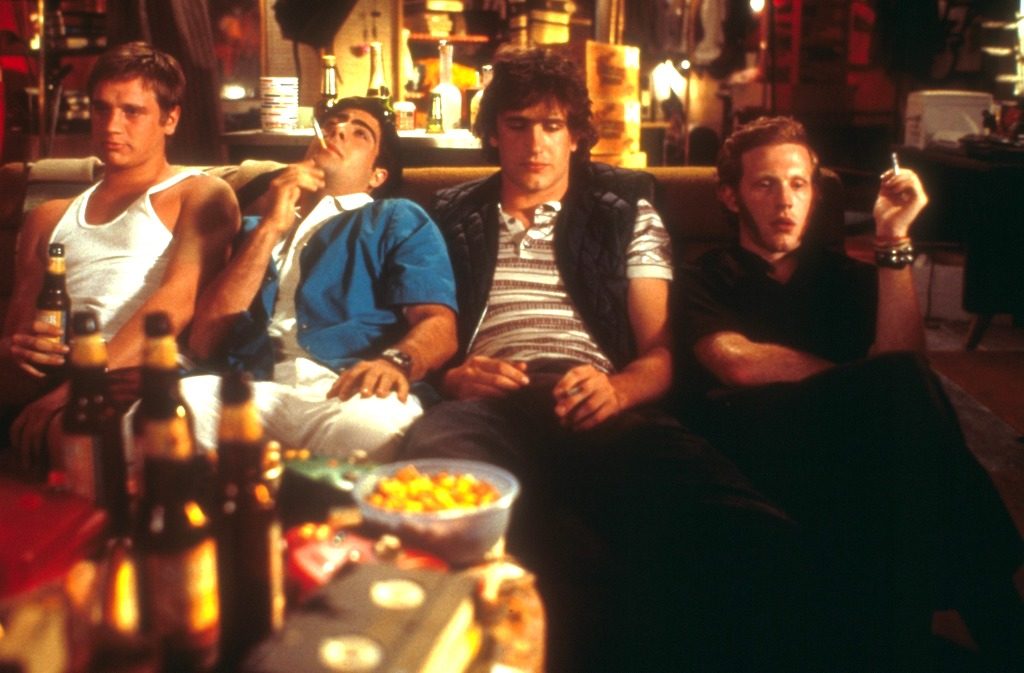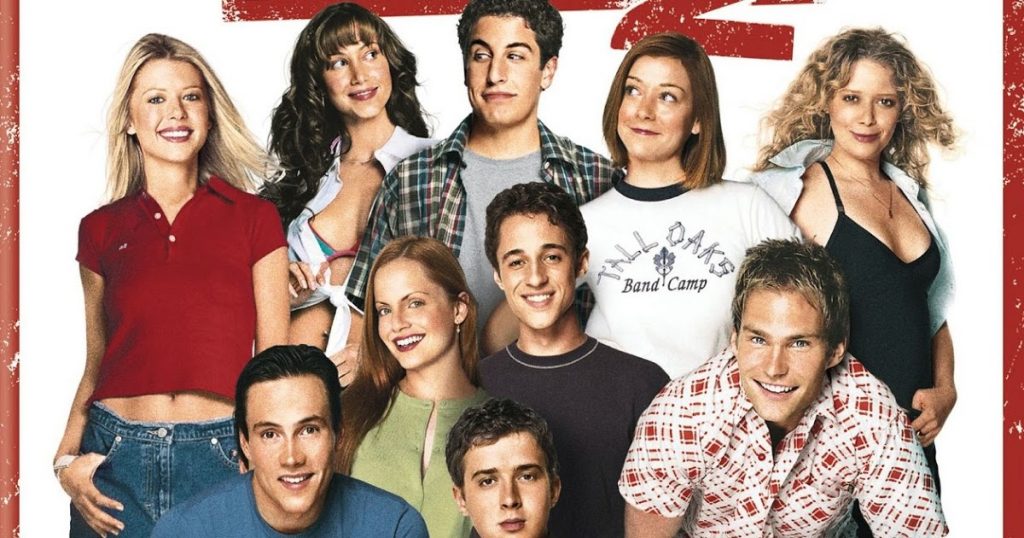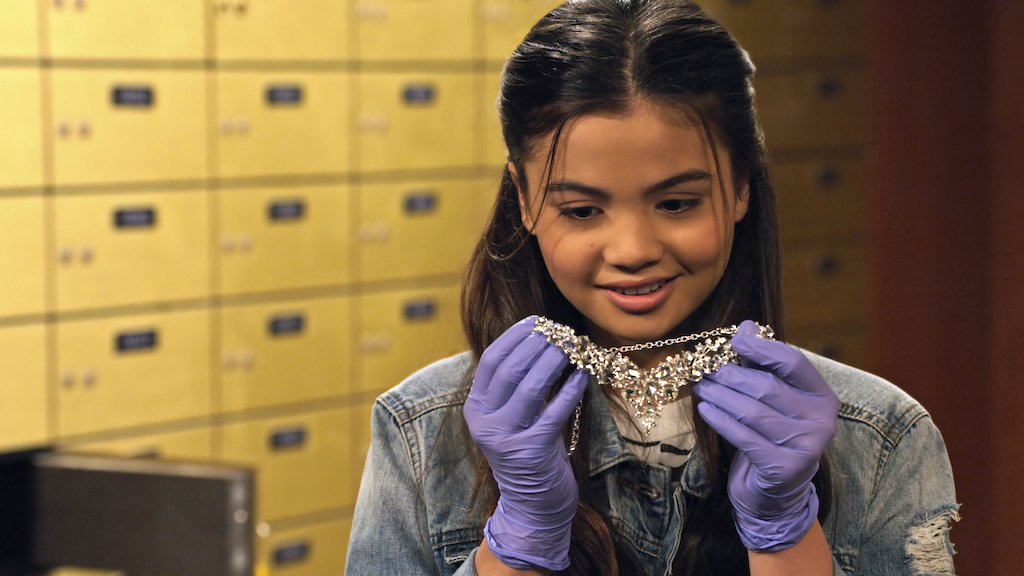The life and career of screenwriter David H. Steinberg has been a movie in and of itself. After entering Yale at sixteen, he earned a law degree at Duke University and practiced entertainment law for four years until attending USC’s Peter Stark Producing Program. It was there he wrote Slackers as a spec script. Once bought by Universal, it launched into the craze of teen sex comedies and soon became a cult classic. Over the next two decades, dozens of projects followed — National Lampoon’s Barely Legal, three American Pie films, the “Pay Pal” episode for The Simpsons, Tinker Bell and the Pixie Hollow Games (DisneyToon Studios), Puss In Boots (DreamWorks), Speed Racers, Miss Dial, Yo-kai Watch (Disney) and scripts for studios like Sony, Warner Bros., New Line Cinema and 20th Century Fox. Now Executive Producer and Showrunner for No Good Nick on Netflix, Steinberg discusses his craft and journey as a creative in Hollywood.

David. H. Steinberg
When did you first realize you wanted to write comedy?
My first script was actually a Star Trek: Voyager spec so I wasn’t like a stand-up comic who always wanted to write comedy. But in the feature space, I was drawn more toward comedic premises, so my first few movie scripts had high-concept hooks. I mean, I think I’m funny, but it’s a bit of an insecurity since jokes aren’t my strongest suit. I think I’m better at character and structure — which of course you need for any good script — but I never thought of myself as a “comedy writer.” Of course, once Slackers sold, that’s exactly what I was marketed as.
Tell us about Slackers and how you sold that script on spec to start your career.
It was the third feature spec I’d ever written and it came out right after American Pie was released so it was a matter of perfect, and completely lucky, timing. I have a whole thread about it on my Twitter feed but essentially, I caught the tail end of the 90s spec boom where studios were buying scripts for big money every day. My agent sent it out on a Tuesday and we closed the deal two days later for $700,000 and a production commitment!

Cast Of Slackers
How was your experience working on American Pie 2 and did you feel pressure to top the original?
It was surprisingly challenging and not just because it was my first paid writing job. At the time we were scrambling to think of what could happen next when the first movie was literally about four friends losing their virginity. Only after we realized that American Pie could be something bigger thematically were we able to crack the story. And I got a great soundbite in at the premiere when I was talking to Entertainment Tonight and said: “The first movie was about sex, this one’s about love.”
When you returned to the American Pie series for the seventh and ninth films everything had changed quite a bit. Even those films were eleven years apart. Did you like the direction the series went and did your approach change at all?
I think American Pie has become a genre in itself about the awkwardness of being a teenager and learning about sex. Book of Love was written during the hey-day of the American Pie Presents direct-to-video series and I was proud to have figured out a way to tie it back to the original with new characters finding “the book” years later. Girls’ Rules was actually written only a year later but it took almost ten years to get made as the business model for DTV was changing. It was originally just another teen sex comedy about four guys but during the decade of development, other writers came on and changed the gender of all the characters. It’s a great change, actually, as the teen sex comedy genre is a bit stale at this point!

Cast Of American Pie 2
Writing one episode for The Simpsons and being nominated for a Writers Guild Award is comical in and of itself. How did you come up with that episode, “Pay Pal?”
I had a general meeting with the showrunner Al Jean and we hit it off. Well, enough to have him invite me back to pitch ideas for a freelance episode. (Long-running shows usually hire outside writers not on the staff to write two of the twenty-two episodes every season.) So I frantically came up with about ten ideas, cross referencing whether they’d been done before since this was for season 25 of the show. That day in the room was pretty intimidating but they actually loved my very first pitch about Marge secretly paying a girl to be friends with Lisa. I spent the whole day in the room working on the outline with Al and Tim Long, another executive producer, and then they sent me off to write. It became the Mother’s Day episode and I was as surprised as anyone when it was nominated for a Writers Guild Award. I didn’t win but I did get to go to the awards ceremony which was super cool.
What did you learn making your feature film directorial debut, Miss Dial?
My feature writing career had stalled in many ways by around 2010 and I wanted to not only jump start things with a new film but I also wanted to try my hand at directing to see what that level of creative control felt like. I took a weekend seminar on directing and directed two shorts and a music video so I felt like I was ready to jump into the big chair. And the process was amazing. I really learned to connect with actors and speak their language. Ultimately, though, what I realized was that directing wasn’t exactly what I was looking for creatively. I do like to think visually like a director but I guess I’m too impatient to focus on the incredible details you need to be a great director. And it turns out I was right — directing wasn’t my calling. It was showrunning.
How did No Good Nick for Netflix materialize?
I had always loved TV writing and it was just an accident of fate (Slackers!) that I spent ten years working mostly in features. But during that time, I would have series ideas and sometimes even sell TV shows to the networks. Those pilots never got made and I never got staffed because I was making a living in features. But around the same time as when the assignment business was drying up (and my feature career with it), I got a pilot script ordered at ABC Family. In executive producing that pilot over the course of several months, I learned so much and loved the process so intensely that I left my film agent and signed with CAA in the TV department.
That show didn’t go to series, but I knew at that point I wanted to be a TV writer and work my way up to showrunner. I finally got staffed on an Amazon show, the Kicks, and soaked up everything as a staff writer (but one with a lot of experience). I staffed on another show the following year, and, actually during that TV writers’ room, I got a call from the executive from ABC Family who oversaw my pilot. He had moved on to Netflix and had an idea about a girl who’s kind of a bad seed. That idea became No Good Nick.
What does the future hold for you creatively?
Since showrunning No Good Nick for 20 episodes I feel like I’ve raised the floor on how low my career can sink! Fortunately, successfully running a television show gives you a certain amount of credibility to executives and the experience of producing every aspect of the series teaches you how to be better at what you do. So that’s a long way of saying that I’ve been very fortunate since No Good Nick to sell a bunch of other projects. My writing partner and I have feature projects in development at two major studios and another series in development at Netflix. And we’re always creating, thinking of new ideas, and even pitching, even though we’re super busy. Because we don’t ever want to stop working and our goal is to get another show on the air so we can get back to running our own TV writers’ room and get back into the big chair.

